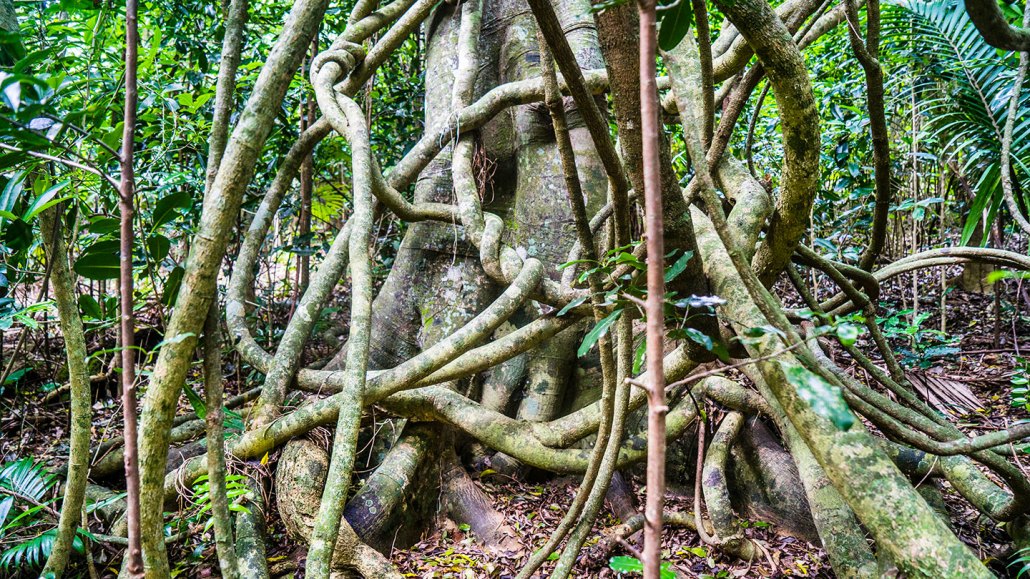
Plants
Rampaging vines are slowly strangling tropical forests
Called lianas,these vines are growing out of control. They may cause tropical forests to absorb less carbon dioxide — worsening climate change.
By Douglas Fox
Come explore with us!

Called lianas,these vines are growing out of control. They may cause tropical forests to absorb less carbon dioxide — worsening climate change.

Rubisco is a key protein in the process of photosynthesis, which feeds plants — and, in turn, us.

Teamwork makes green-work! Collaborating scientists came up with an electrifying farming trick that could make sunlight optional.

Younger stormwater ponds can release more carbon in gases than they absorb, a study finds. That could aggravate global warming.

This word can refer to rotting flesh or the transformation of radioactive atoms.

Instead of warming the climate, methane gas can be collected to help farmers. Along the way, it may also save some fish.

When heat waves and droughts collide, water is precious. Some thirsty plants try to cool off by opening tiny pores — only to lose water even faster.

Anolis lizards leap into streams to escape danger. Now researchers have figured out how they can stay underwater for up to a quarter of an hour.

New fossil evidence shows 90 percent of sharks died in the mysterious event.

Soils are the life-sustaining structures under our feet. Here are some tips for keeping soils healthy. First rule of thumb: Give more than you take.